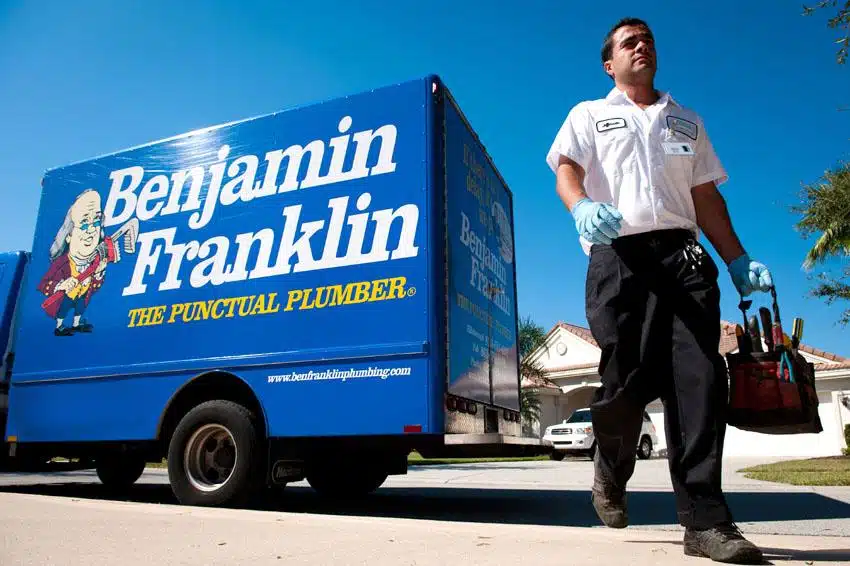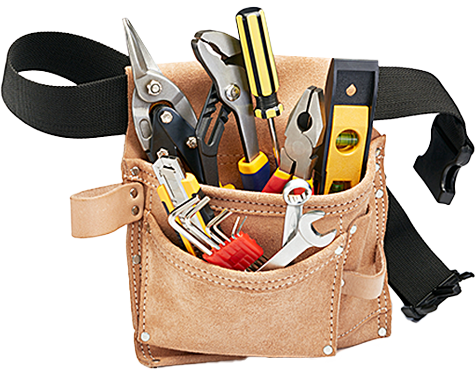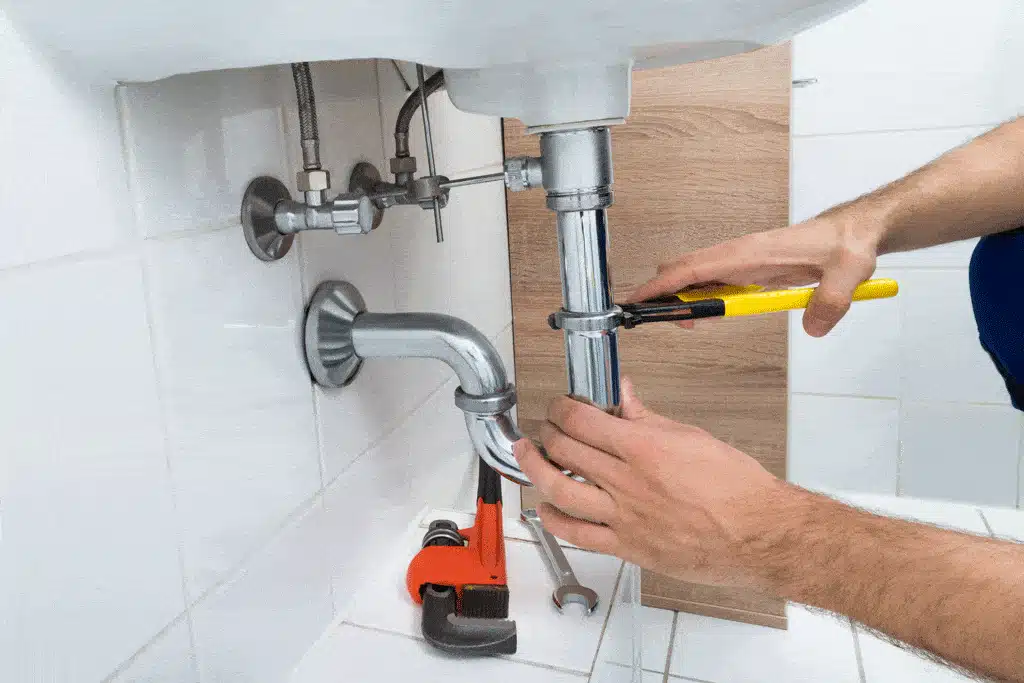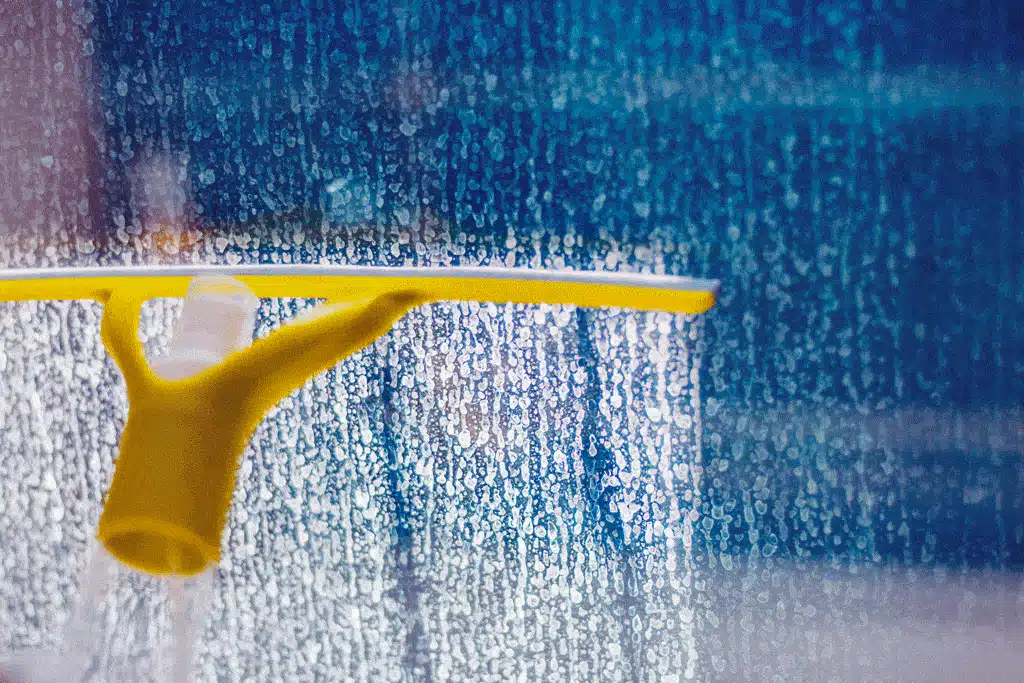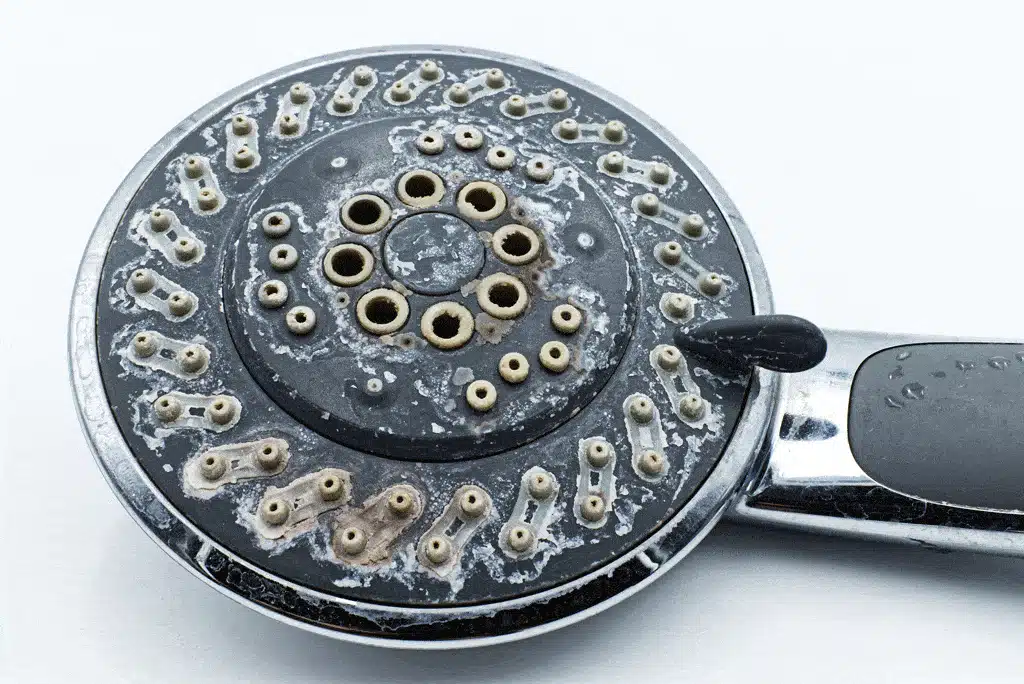Ever wondered how a Water Softener Installation could dramatically improve your family’s daily life?
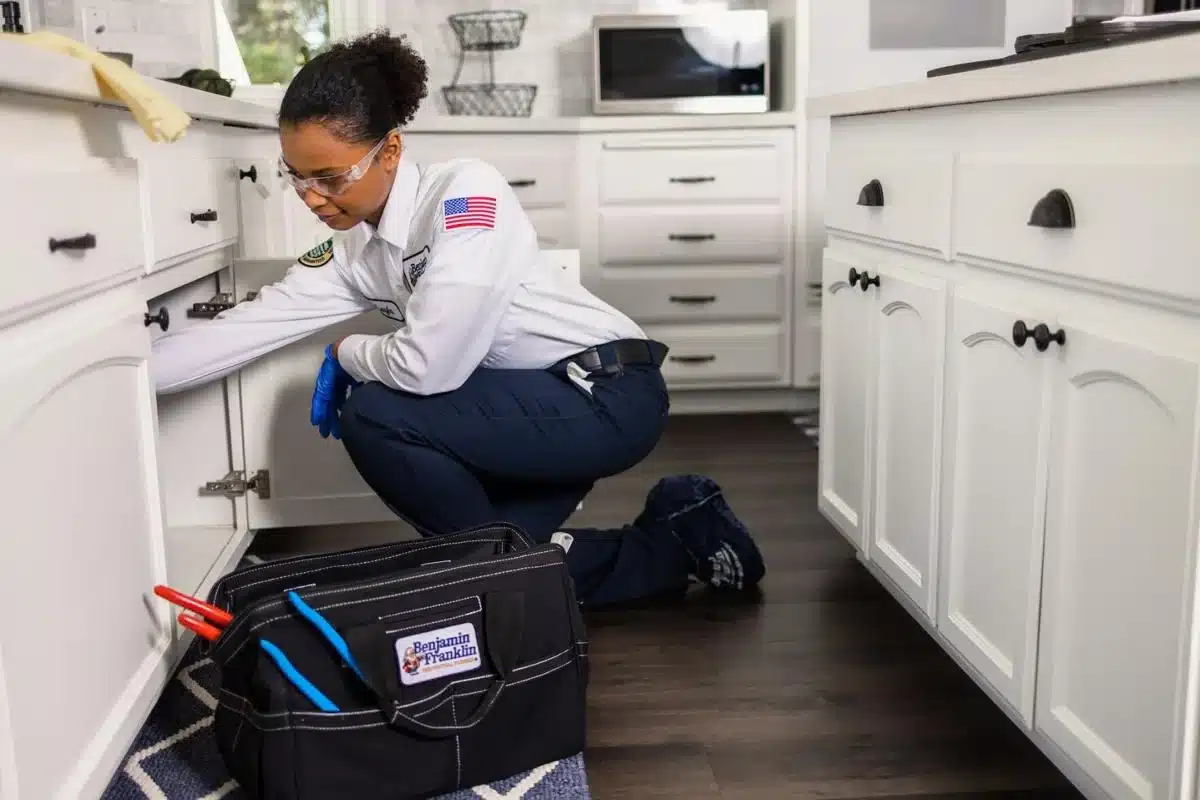
Navigating Common Plumbing Challenges
The Perils of Poor Plumbing: Understanding Your Risks
Picture this: It’s a regular Tuesday evening.
You’re about to enjoy a well-deserved hot shower after a long day.
But wait, there’s a problem.
The water pressure is low, and the water is oddly discolored. Sounds familiar?
For many Dallas homeowners and businesses, this isn’t just a hypothetical scenario – it’s a frequent headache.
Plumbing issues can range from minor annoyances to major crises, disrupting your daily life and potentially causing significant damage to your property.
Highlight Common Plumbing Issues Faced by Homeowners and Businesses
Now, let’s talk about the elephant in the room – or rather, the hidden issues in your pipes.
From leaky faucets that go drip-drip in the night to the mysterious case of the perpetually clogged toilet, plumbing problems are as diverse as they are frustrating.
And let’s not forget about the silent culprits: hard water wreaking havoc on your appliances and pipes, or that sneaky leak that’s slowly but surely hiking up your water bill.
In Dallas, where the water can be as hard as the Texas spirit, these issues aren’t just annoyances; they’re a call to action.
Hard water, for instance, isn’t just about dealing with soap that won’t lather.
It’s about protecting your home and appliances from the long-term damage caused by mineral buildup.
But fear not, Dallas residents! This is where Benjamin Franklin Plumbing of Dallas swoops in.
Think of us as your plumbing superheroes, minus the capes.
We’re here to tackle these challenges head-on, ensuring your plumbing system works seamlessly, just like a well-oiled machine.
Contact us today at 945-224-0196 for your Water Softener Installation and experience the difference in your home’s water quality!
Why Choose Benjamin Franklin Plumbing of Dallas: Our Unique Approach To Solving Your Plumbing Problems
Have you ever been stuck in a plumbing predicament, feeling utterly overwhelmed?
Well, you’re not alone. Plumbing issues are like uninvited guests; they arrive without warning and can turn your world upside down.
But here’s the good news: Benjamin Franklin Plumbing of Dallas is your go-to solution, turning chaos into calm with our unique approach.
A Blend of Tradition and Innovation
At Benjamin Franklin Plumbing of Dallas, we believe in a blend of time-honored methods and cutting-edge technology.
We’re not just any plumbing service; we’re a team that respects the wisdom of traditional practices while embracing the advancements of the modern world.
This fusion ensures that no matter the problem, we’ve got a solution that’s both effective and efficient.
Tailored Solutions, Just for You
We understand that every home and business in Dallas is unique, with its own set of challenges.
That’s why we don’t believe in a one-size-fits-all approach.
Our team takes the time to understand your specific needs, crafting personalized solutions that hit the nail on the head.
Whether it’s a simple leak or a complex water softener installation, we tailor our services to fit your exact requirements.
With our expertise, your water softener installation will be smooth, efficient, and hassle-free.
The Punctuality Promise
Ever been stood up by a service provider? Not with us!
We’re called Benjamin Franklin Plumbing for a reason.
Just like our namesake, we value punctuality.
We’re the folks who arrive on time, every time.
If there’s ever a delay, you’ll be the first to know, because your time is as precious as ours.
A Team You Can Trust
Our professionals are not just skilled; they’re licensed, insured, and bursting with expertise.
Each member of our team is a seasoned pro, equipped with the knowledge and tools to handle any plumbing challenge.
And yes, they’re friendly too! We believe in building relationships, not just fixing pipes.
Eco-Friendly Options for the Conscious Consumer
Concerned about your carbon footprint? We are too.
That’s why we offer eco-friendly plumbing solutions.
From water-saving fixtures to energy-efficient systems, we help you make choices that are good for the planet and your wallet.
Ready for Anything, Anytime
Plumbing emergencies don’t wait, and neither do we.
Our emergency services are available 24/7, ensuring that we’re there when you need us the most.
Rain or shine, night or day, we’re just a call away.
Contact us today at 945-224-0196 for your Water Softener Installation and experience the difference in your home’s water quality!
Emergency Plumbing Services: Ready When You Need Us
Imagine this: It’s 2 AM, and you’re jolted awake by the sound of water gushing somewhere in your home. Panic sets in.
Water damage, costly repairs, and a whole lot of mess flash through your mind.
But wait, there’s no need to fret! Benjamin Franklin Plumbing of Dallas is your knight in shining armor, available 24/7 to tackle any plumbing emergency you might face.
Facing a plumbing crisis? Visit our page now for reliable Emergency Plumber services, ensuring peace of mind and quick solutions.
Why Our 24/7 Emergency Services Are a Game Changer
- Round-the-Clock Availability: Whether it’s a burst pipe at midnight or a clogged toilet on a holiday, we’re just a call away. Our team is ready to jump into action, ensuring that your plumbing emergencies are handled promptly, no matter the hour.
- Rapid Response Time: We know that in a plumbing crisis, every second counts. Our local presence in Dallas and surrounding areas like Frisco, TX, and Carrollton, TX, means we can get to you fast, reducing the risk of damage and getting your life back to normal quicker.
- Skilled Emergency Technicians: Our emergency team isn’t just any crew; they’re seasoned pros equipped with the latest tools and techniques. They’re trained to handle high-pressure situations with a calm, professional demeanor.
- Comprehensive Solutions: From diagnosing the root cause to executing a swift fix, we don’t just put a band-aid on your plumbing woes. We aim for lasting solutions that prevent future emergencies.
- Transparent and Fair Pricing: Emergencies shouldn’t mean exorbitant prices. We pride ourselves on honest, upfront pricing, even in the wee hours. No surprises, just fair, transparent charges for top-notch services.
When to Call Us: Recognizing a Plumbing Emergency
- Burst Pipes: A true plumbing catastrophe that can cause significant damage.
- Severe Clogs: When the plunger just won’t cut it, and the water keeps rising.
- Water Heater Failure: Cold showers on a chilly Dallas morning? Not on our watch!
- Gas Line Issues: A potential hazard that needs immediate expert attention.
- Sewage Backups: A messy, unhealthy situation that requires urgent professional intervention.
At Benjamin Franklin Plumbing of Dallas, we’re not just about fixing pipes; we’re about restoring your peace of mind.
Our emergency services are designed to provide quick, effective, and reliable solutions to your most pressing plumbing problems.
Contact us today at 945-224-0196 for your Water Softener Installation and experience the difference in your home’s water quality!
Water Softener Installation: Enhancing Your Water Quality
Have you ever noticed how your soaps don’t lather well, or your clothes seem a bit dingy after washing?
These are tell-tale signs of hard water in your home.
But fear not, because Benjamin Franklin Plumbing of Dallas is here to turn things around with our expert Water Softener Installation services.
Why Water Softeners are a Game-Changer
Hard water, laden with minerals like calcium and magnesium, is a common culprit behind several household woes.
It can lead to scale buildup in pipes, reduced efficiency of appliances, and even impact your skin and hair health.
That’s where water softeners come into play, acting like a knight in shining armor for your plumbing system.
The Magic Behind Water Softener Installation
Our process is straightforward yet thorough. We start by testing your water to understand the level of hardness.
Based on these results, we recommend the best water softener installation system for your home.
Our skilled technicians, equipped with the latest tools and a wealth of experience, ensure a seamless installation process.
The Perks of Choosing Benjamin Franklin Plumbing
Expertise and Precision: Our team is not just skilled; they’re wizards in the plumbing world, ensuring every installation is done with precision and care.
Tailored Solutions: We understand that every home in Dallas, TX, and surrounding areas like Frisco, TX, Carrollton, TX, and Richardson, TX, is unique. That’s why we offer customized solutions that fit your specific needs.
Long-term Savings: By preventing scale buildup and extending the life of your appliances, our water softener systems are a smart investment for your wallet and your peace of mind.
By choosing Benjamin Franklin Plumbing of Dallas for your water softener installation, you’re not just getting a service; you’re investing in your home’s future.
With our expertise, your water softener installation will be smooth, efficient, and hassle-free.
Whether it’s a simple leak or a complex water softener installation, we tailor our services to fit your exact requirements.
After the Installation: Our Continued Support
We don’t just install and disappear.
Our team is committed to ensuring your water softener installation system runs smoothly for years to come.
We provide comprehensive guidance on maintenance and are always just a call away for any queries or support you might need.
Our team at Benjamin Franklin Plumbing of Dallas will guide you through the entire water softener installation process.
With our water softener installation, you’re not just improving your water quality; you’re taking a step towards a healthier, happier home.
A Step Towards a Healthier Home
With our water softener installation, you’re not just improving your water quality; you’re taking a step towards a healthier, happier home.
Say goodbye to hard water stains, enjoy softer clothes, better-tasting water, and a noticeable difference in your daily water usage experiences.
At Benjamin Franklin Plumbing of Dallas, we’re more than just service providers; we’re your partners in ensuring a comfortable, efficient, and happy home.
With our expertise in water softener installation and a commitment to excellence, we’re here to transform your water quality woes into a story of the past.
Choosing us for your water softener installation means choosing peace of mind.
Contact us today at 945-224-0196 for your Water Softener Installation and experience the difference in your home’s water quality!
Understanding Water Hardness: The Need For Water Softeners
Have you ever wondered why your dishes come out spotty from the dishwasher, or why your hair feels a tad too dry after a shower?
It’s not just about the soap you’re using; it’s about the water flowing through your Dallas home.
Hard water – it’s a term tossed around a lot, but what does it really mean for you and your home?
What Exactly is Hard Water?
Hard water is like that uninvited guest at a party – it’s there, causing a ruckus, and you might not even realize it.
It’s water that contains high levels of minerals like calcium and magnesium.
While it’s not harmful to drink, it’s a different story when it comes to your plumbing and appliances.
The Impact of Hard Water on Your Home
Imagine your pipes and appliances throwing a silent tantrum. That’s what hard water does.
It leads to scale buildup inside pipes, reducing water flow and efficiency.
Your appliances, like the dishwasher and washing machine, work overtime, wearing out faster.
And let’s not forget those unsightly mineral deposits on your fixtures and surfaces.
Water Softener Installation: Your Knight in Shining Armor
Enter the hero of our story – the water softener.
This nifty device is like a bouncer, showing those pesky minerals the door before they wreak havoc in your home.
It swaps those hard minerals with something a bit softer (usually sodium), giving you water that’s kinder to your home and your skin.
The Benefits: More Than Just Soft Water
Installing a water softener isn’t just a luxury; it’s a game-changer.
You’ll see fewer spots on dishes, feel softer clothes and hair, and your appliances will thank you by lasting longer.
Plus, you’ll be saving money in the long run with fewer repairs and lower energy bills. It’s a win-win!
Benjamin Franklin Plumbing of Dallas: Your Water Softener Installation Wizards
Now, you might be thinking, “This sounds great, but who can I trust to handle this?”
That’s where Benjamin Franklin Plumbing of Dallas steps in.
By choosing Benjamin Franklin Plumbing of Dallas for your water softener installation, you’re not just getting a service; you’re investing in your home’s future.
Our team at Benjamin Franklin Plumbing of Dallas will guide you through the entire water softener installation process.
With our expertise, your water softener installation will be smooth, efficient, and hassle-free.
Ready to Say Goodbye to Hard Water?
If you’re tired of fighting the hard water battle, it’s time to give us a call.
We’ll help you transform your water from hard to harmonious, making your home the oasis it should be.
Remember, with Benjamin Franklin Plumbing of Dallas, it’s not just about installing a water softener; it’s about giving you peace of mind and water you can love.
Choosing us for your water softener installation means choosing peace of mind.
Contact us today at 945-224-0196 for your Water Softener Installation and experience the difference in your home’s water quality!
Types Of Water Softeners: Finding The Right Fit for Your Home
Ever noticed how some homes have that silky-smooth water feel, while others leave your skin feeling like you’ve just taken a dip in the ocean?
That’s the magic (or curse) of water hardness at play.
Here at Benjamin Franklin Plumbing of Dallas, we understand that every home in Dallas, Frisco, Carrollton, and Richardson, TX, has unique water needs.
That’s why we’re diving deep into the world of water softeners, helping you find the perfect match for your home.
Salt-Based Water Softeners: The Traditional Choice
Salt-based water softeners are like the reliable old truck your grandpa swore by – they’ve been around for ages and do the job well.
These systems replace hard minerals like calcium and magnesium with sodium ions.
It’s a bit like a magic trick, but instead of pulling rabbits out of hats, we’re pulling hard minerals out of your water.
The result? Water that’s kinder to your skin, appliances, and plumbing.
Salt-Free Water Softeners: The Modern Maverick
Now, if you’re someone who likes to keep things cutting-edge, salt-free water softeners might just be your cup of tea.
These systems neutralize minerals rather than removing them, meaning you get to keep the beneficial minerals without the hard water drama.
It’s like having your cake and eating it too – the benefits of softened water without the added sodium.
Magnetic Water Softeners: The Space-Age Solution
Magnetic water softeners? Sounds like something out of a sci-fi movie, right?
These systems use magnets (yes, magnets!) to alter the electromagnetic properties of calcium and magnesium ions, preventing them from forming scale.
It’s like giving those hard minerals a chill pill, so they don’t go sticking to your pipes and appliances.
Dual-Tank Water Softeners: For the Non-Stop Household
Got a house full of teenagers who take showers like they’re preparing for a drought?
A dual-tank water softener ensures you never run out of soft water, even during regeneration cycles.
It’s like having a backup generator, but for your water quality.
The Installation Process: What to Expect from Start to Finish
Choosing your water softener installation is just the start.
Our team at Benjamin Franklin Plumbing of Dallas will guide you through the entire water softener installation process.
We’ll assess your home’s water needs, recommend the best system, and handle the installation with the professionalism and punctuality we’re known for.
And don’t worry, we’ll walk you through every step, ensuring you’re as comfortable with the process as you will be with your new water quality.
Your Trusted Plumbing Partner in Dallas
Choosing the right water softener can feel like navigating a maze. But fear not, Dallas residents!
Benjamin Franklin Plumbing is here to light the way.
Whether you’re in Dallas, TX, or the surrounding areas like Frisco, Carrollton, or Richardson, we’ve got the expertise, the options, and the dedication to transform your water experience.
Choosing us for your water softener installation means choosing peace of mind.
Say goodbye to hard water woes and hello to a home where water feels just right.
Contact us today at 945-224-0196 for your Water Softener Installation and experience the difference in your home’s water quality!
The Installation Process: Understanding The Need For A Water Softener
Ever noticed how some water just feels “harder” on your skin and appliances?
That’s not just your imagination. In places like Dallas, water hardness is a real issue, affecting everything from your morning shower to the lifespan of your plumbing.
It’s why water softener installation isn’t just a luxury; it’s a necessity for many.
Choosing the Right Water Softener
Before we dive into the installation process, let’s talk about finding the right fit.
With various types of water softeners available – salt-based, salt-free, magnetic, and more – it can feel like navigating a maze.
But don’t worry, at Benjamin Franklin Plumbing of Dallas, we’re like your personal GPS in the world of water softeners, guiding you to the perfect choice for your home.
Step-by-Step Installation Process
Now, let’s walk through what you can expect when we install your water softener:
- Initial Consultation:
We start with a chat. Think of it as a ‘get-to-know-you’ session for your plumbing.
We’ll discuss your water usage, test your water hardness, and recommend the best water softener for your needs.
- Preparation and Safety:
Our team arrives, tools in hand, ready to transform your water experience. We prioritize safety, ensuring everything is set up correctly before we begin.
- Installation:
This is where the magic happens. We’ll connect your new water softener to your main water line. It’s a bit like performing surgery on your plumbing – precise, careful, and always professional.
- Testing and Calibration:
Once installed, we don’t just pack up and leave. We test the system, making adjustments to ensure it’s working just right. It’s like tuning a guitar, but for your water.
- Final Walkthrough and Education:
We’ll show you how your new system works and how to maintain it. Think of it as Water Softeners 101, with your home as the classroom.
- Cleanup and Follow-Up:
We leave your space cleaner than we found it. And our job isn’t done until you’re completely satisfied. Expect a follow-up call, just to make sure everything’s running smoothly.
Post-Installation Care
After installation, we’re still here for you.
Regular maintenance is key to keeping your water softener in top shape.
We’ll guide you through simple steps to ensure your system keeps performing at its best.
Why Benjamin Franklin Plumbing?
Choosing us for your water softener installation means choosing peace of mind.
We’re not just plumbers; we’re your neighbors in Dallas, committed to providing you with the best service possible.
Our team is committed to ensuring your water softener installation system runs smoothly for years to come.
With our expertise, your water softener installation will be smooth, efficient, and hassle-free.
By choosing Benjamin Franklin Plumbing of Dallas for your water softener installation, you’re not just getting a service; you’re investing in your home’s future.
Say goodbye to hard water issues and hello to a world of soft, quality water.
Contact us today at 945-224-0196 for your Water Softener Installation and experience the difference in your home’s water quality!
Maintenance And Care Of Your Water Softener System
Ever wondered why some water softeners seem to last forever, while others fizzle out faster than a firecracker in a rainstorm?
The secret isn’t just in the installation; it’s in the maintenance.
At Benjamin Franklin Plumbing of Dallas, we’re not just about installing your water softener; we’re about keeping it running smoothly for years to come.
Understanding Your Water Softener: More Than Just a Box in the Basement
Your water softener is like a silent guardian, tirelessly working to keep your water pristine.
Regular maintenance is crucial to ensure your system remains efficient and effective.
Think of it as a health check-up for your water softener – neglect it, and you might find yourself in hot water, and not the good kind!
Common Maintenance Tasks: Keeping Your System in Top Shape
- Salt Level Checks: Just like checking the oil in your car, regularly checking the salt level in your brine tank is essential. Low salt levels can lead to hard water sneaking back into your pipes. Our tip? Check it monthly!
- Salt Bridges: Ever heard of a salt bridge? It’s like an unwanted shelf in your brine tank that stops the salt from doing its job. A gentle poke with a broom handle can break any bridges that form.
- Resin Bed Rejuvenation: Your system’s resin bed is where the magic happens. Over time, iron and other minerals can clog it up. Flushing it with a water softener cleaner, which we can provide, keeps it working like a charm.
- Filter Cleaning: Some systems have a filter that needs a regular rinse. It’s like brushing your teeth – do it regularly for the best results.
- Professional Check-ups: Sometimes, you need to call in the pros. We recommend a professional inspection every year to catch any sneaky issues before they become big problems.
Discover the clarity and purity your home deserves; visit our page to explore our Water Filtration solutions and services today!
Troubleshooting Tips: DIY Fixes for Common Issues
Low Water Pressure: If your showers are more drizzle than downpour, check for salt blockages or sediment build-up in the filters.
Strange Tastes or Odors: This could be a sign of bacterial growth. A thorough cleaning or a check-up can nip this in the bud.
System Regenerates Too Often (or Not Enough): This could be a setting issue. We can help you adjust it to match your water usage.
Why Regular Maintenance Matters: More Than Just Convenience
Regular maintenance isn’t just about preventing breakdowns; it’s about efficiency.
A well-maintained water softener uses less salt and energy, saving you money in the long run.
Plus, it extends the life of your appliances by preventing scale build-up. It’s a win-win!
Let Benjamin Franklin Plumbing of Dallas Be Your Water Softener Installation Guardian
At Benjamin Franklin Plumbing of Dallas, we’re more than just plumbers; we’re your partners in home maintenance.
Whether you’re in Dallas, TX, Frisco, TX, Carrollton, TX, or Richardson, TX, we’re here to ensure your water softener installation and maintenance is as smooth as the water it produces.
Remember, a little care goes a long way. Let us help you keep your water softener in tip-top shape!
Contact us today at 945-224-0196 for your Water Softener Installation and experience the difference in your home’s water quality!
Plumbing Inspections: Proactive Maintenance For Peace of Mind
Ever Wondered What’s Lurking in Your Pipes?
Let’s face it, most of us don’t think about our plumbing until there’s a problem.
But what if you could prevent these issues before they start?
That’s where regular plumbing inspections come in, offering you peace of mind and saving you from future headaches.
Discover unparalleled expertise in Plumbing Repair with a visit to our page – your solution for reliable and efficient service in Dallas!
The Hidden Heroes of Home Maintenance
Why Regular Inspections?
Detecting the Sneaky Problems: Small leaks and blockages often go unnoticed until they become big, costly problems. Regular inspections catch these issues early.
Saving Your Wallet in the Long Run: Think of inspections as an investment. By catching issues early, you’re saving on hefty repair bills down the line.
Ensuring Everything Flows Smoothly: Regular check-ups ensure your plumbing system runs efficiently, reducing the risk of unexpected breakdowns.
What’s Included in a Plumbing Inspection?
A Thorough Check-Up: From your water heater to the pipes hidden behind walls, our team examines every nook and cranny.
Using the Latest Tech: We use state-of-the-art equipment to detect even the most elusive problems.
Expert Eyes: Our seasoned professionals can spot potential issues that might be missed by the untrained eye.
Contact us today at 945-224-0196 for your Water Softener Installation and experience the difference in your home’s water quality!
Customer Testimonials: Hear From Our Satisfied Clients
Ever wondered what it’s like to have a plumbing service that actually listens, responds, and resolves your issues with a smile?
Don’t just take our word for it; hear it straight from those who’ve experienced the Benjamin Franklin Plumbing difference!
Samantha R., Dallas, TX ⭐⭐⭐⭐⭐
“A Lifesaver in a Crisis!”
“When our kitchen sink turned into a mini Niagara Falls at 2 AM, Benjamin Franklin Plumbing was there faster than you can say ’emergency’. The technician was not only quick but also incredibly courteous and skilled. Problem solved in no time!”
Mark T., Frisco, TX ⭐⭐⭐⭐⭐
“Water Softener Installation? A Breeze!”
“I was clueless about water softeners, but the team at Benjamin Franklin Plumbing made it so simple. They walked me through the options, installed it seamlessly, and now my water feels like silk! Plus, no more limescale buildup. Total game-changer!”
Jennifer L., Carrollton, TX ⭐⭐⭐⭐⭐
“Professionalism That Stands Out”
“From the moment I called to the final handshake, the professionalism was top-notch. Transparent pricing, punctual service, and the friendliest staff. They turned a usually stressful situation into a surprisingly pleasant experience.”
Brian S., Richardson, TX ⭐⭐⭐⭐⭐
“Eco-Friendly Solutions That Work”
“As someone who’s environmentally conscious, I appreciated their eco-friendly plumbing options. They helped me choose sustainable solutions without compromising on efficiency. Truly a forward-thinking company!”
Alexandra G., Dallas, TX ⭐⭐⭐⭐⭐
“The Go-To for Commercial Plumbing”
“Running a business means needing reliable partners. Benjamin Franklin Plumbing has been our go-to for all plumbing needs. Their understanding of commercial requirements and ability to deliver promptly is unmatched.”
At Benjamin Franklin Plumbing of Dallas, we’re not just about fixing pipes; we’re about building trust, ensuring comfort, and enhancing your home’s functionality.
Our satisfied clients across Dallas and beyond are a testament to our commitment to excellence, professionalism, and customer satisfaction.
Whether it’s a water softener installation or an emergency fix, we’re here to ensure your plumbing needs are met with the highest standards.
Discover real customer experiences and connect with us on our Google Business Profile for personalized plumbing solutions.
Experienced Professionals: Skilled, Licensed, And Insured
Ever found yourself wondering, “Who can I really trust to fix this leak?”
Let’s face it, when it comes to plumbing, expertise isn’t just a nice-to-have; it’s a must.
That’s where our team at Benjamin Franklin Plumbing of Dallas shines.
We’re not just any group of plumbers; we’re your local experts, equipped with the know-how and credentials to back it up.
Why Our Plumbers Are a Cut Above the Rest
Licensed and Insured – A Promise of Quality: Each member of our team isn’t just skilled; they’re licensed professionals.
This means they’ve passed rigorous state exams and continuously update their knowledge.
Plus, being fully insured, we ensure that you’re protected, no matter what.
Continual Training – Staying Ahead of the Curve: Plumbing isn’t static, and neither are we.
Our plumbers regularly undergo training to stay on top of the latest techniques and technologies.
Whether it’s a traditional water heater or the latest water softener installation, they’ve got the chops to handle it.
Experience That Speaks Volumes: There’s no substitute for experience, and our team has it in spades.
They’ve seen it all – from the trickiest leaks to the most complex installations in Dallas, TX, and beyond.
This isn’t just a job for them; it’s a craft they perfect every day.
Bringing Expertise Right to Your Doorstep
When you call us, you’re not just getting a service; you’re getting a promise.
A promise that the person showing up at your door is not only skilled but also respectful of your home and your time.
They’re the kind of professionals who don’t just fix problems; they explain solutions in a way that makes sense to you.
Your Plumbing, Our Responsibility
Choosing Benjamin Franklin Plumbing of Dallas means opting for peace of mind.
You’re choosing a team that values professionalism, punctuality, and transparency – qualities that resonate with our clients from middle to high-income households, who value efficiency and reliability in their home maintenance.
So, next time you’re facing a plumbing dilemma, remember, our team is just a call away.
Ready to tackle your issues with expertise and care, ensuring your home is in safe hands.
Contact us today at 945-224-0196 for your Water Softener Installation and experience the difference in your home’s water quality!
FAQ Section
What Services Does Benjamin Franklin Plumbing of Dallas Offer?
We offer a comprehensive range of plumbing services, including emergency repairs, water softener installation, drain cleaning, leak detection, water heater services, and much more. Whether it’s a small fix or a major installation, we’ve got you covered.
How Does Water Softener Installation Work?
Water softener installation begins with a thorough assessment of your home’s water system. We then select the best softener for your needs, install it seamlessly, and ensure everything is running smoothly. Our team makes the process hassle-free and efficient.
Are Your Services Available 24/7 for Emergencies?
Absolutely! We understand that plumbing emergencies don’t wait. That’s why our team is ready to assist you 24/7, ensuring that your plumbing issues are resolved promptly and effectively, no matter the time of day.
How Do I Schedule a Service with You?
Scheduling a service is easy! You can call us directly or book an appointment through our website. We offer flexible scheduling to accommodate your busy life and ensure timely service.
What Makes Benjamin Franklin Plumbing of Dallas Stand Out?
Our commitment to punctuality, professionalism, and quality sets us apart. We’re not just experts in plumbing; we’re dedicated to providing a service experience that is seamless, transparent, and tailored to your needs. Plus, our local knowledge of Dallas and surrounding areas ensures we’re always a step ahead.
At Benjamin Franklin Plumbing of Dallas, we’re more than just plumbers; we’re your partners in maintaining a smooth-running, comfortable home.
Remember, when it comes to plumbing, we’re the punctuality pros you can count on!
Contact us today at 945-224-0196 for your Water Softener Installation and experience the difference in your home’s water quality!




